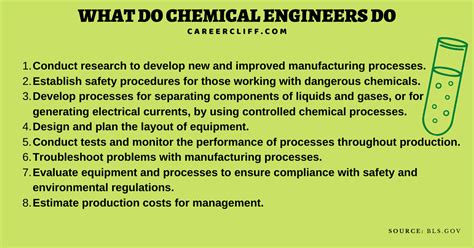Chemical engineering students are immersed in numerous core classes that provide them with a comprehensive understanding of the field. These classes equip aspiring chemical engineers with the knowledge, analytical skills, and design methodologies essential for their future careers in industries such as energy, healthcare, food processing, pharmaceuticals, and manufacturing.

Core Classes for Future Chemical Engineers
Chemistry
- General Chemistry: Delves into the fundamental principles of chemistry, including atomic structure, bonding, chemical reactions, and thermodynamics.
- Organic Chemistry: Explores the structure, reactivity, and synthesis of organic compounds, which are vital in many industries.
- Physical Chemistry: Equips students with an understanding of the interplay between energy, matter, and thermodynamics, laying the foundation for advanced chemical engineering concepts.
Mathematics
- Calculus: Provides essential mathematical tools for modeling, analyzing, and optimizing chemical processes.
- Linear Algebra: Introduces vector spaces, matrices, and linear transformations, which are widely used in chemical engineering for data analysis and control.
- Differential Equations: Equips students with the ability to solve differential equations that describe the dynamics of chemical systems.
Physics
- General Physics: Covers fundamental principles of classical and modern physics, including mechanics, electricity, magnetism, and waves.
- Thermodynamics: Provides a theoretical framework for understanding energy transfer, heat flow, and the behavior of chemical systems at different temperatures.
Chemical Engineering Principles
- Chemical Process Principles: Introduces the principles of chemical process design, including material and energy balances, reaction kinetics, and equilibrium.
- Transport Phenomena: Delves into mass, momentum, and heat transport in chemical systems, equipping students with the understanding necessary for designing and optimizing chemical processes.
- Process Control: Provides a foundation for the design and analysis of control systems used to monitor and regulate chemical processes.
Other Essential Courses
- Engineering Design: Offers hands-on experience in applying chemical engineering principles to real-world problems.
- Laboratory Techniques: Provides practical experience in conducting experiments and analyzing data related to chemical processes.
- Computer Applications: Introduces students to computational tools and software used in chemical engineering for data analysis, modeling, and design.
Core Competencies Developed
Through these core classes, chemical engineering students develop a comprehensive skillset that includes:
- Strong foundation in chemistry, mathematics, and physics
- Ability to analyze, design, and optimize chemical processes
- Proficiency in numerical modeling, data analysis, and problem-solving
- Understanding of transport phenomena, thermodynamics, and process control
- Hands-on experience in laboratory and engineering design projects
Career Prospects for Chemical Engineers
Chemical engineering graduates are in high demand in various industries, including:
- Energy (oil and gas, renewable energy)
- Healthcare (pharmaceuticals, medical devices)
- Food processing (food safety, nutrition)
- Manufacturing (electronics, automotive)
- Consulting and research
Common Mistakes to Avoid
- Trying to memorize too much information: Focus on understanding the concepts and their applications rather than memorizing formulas and equations.
- Neglecting problem-solving practice: Engage in regular practice of solving problems to enhance your analytical and design skills.
- Overlooking lab safety: Always prioritize safety protocols and follow proper procedures when conducting laboratory experiments.
Conclusion
The core classes taken by chemical engineering students provide a solid foundation for their future careers in the field. By mastering these fundamental concepts and developing essential competencies, chemical engineers are equipped to address complex challenges and make significant contributions to the development of innovative solutions across a wide range of industries.
Additional Resources
- American Institute of Chemical Engineers (AIChE)
- Chemical Engineering Education Accreditation Criteria
- Chemical Engineering Jobs Outlook
